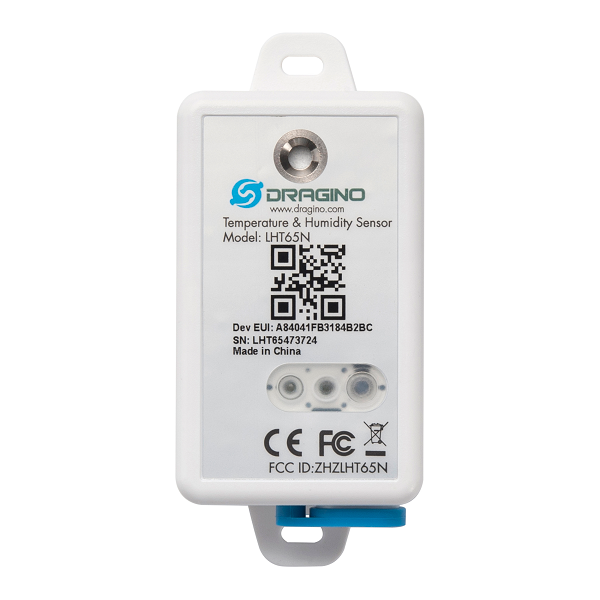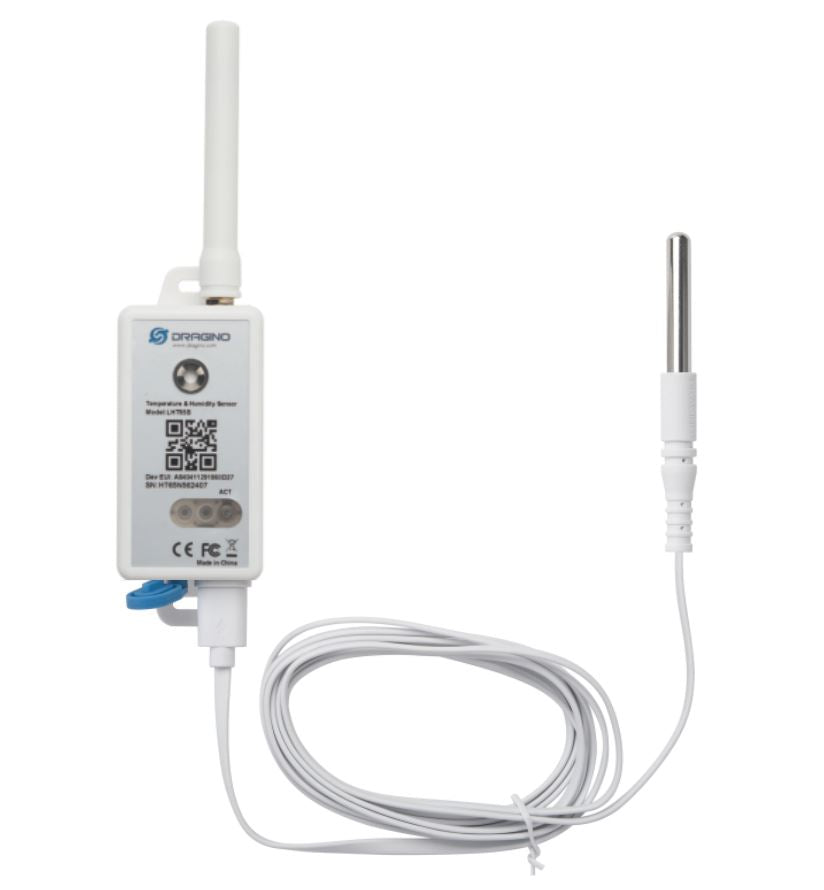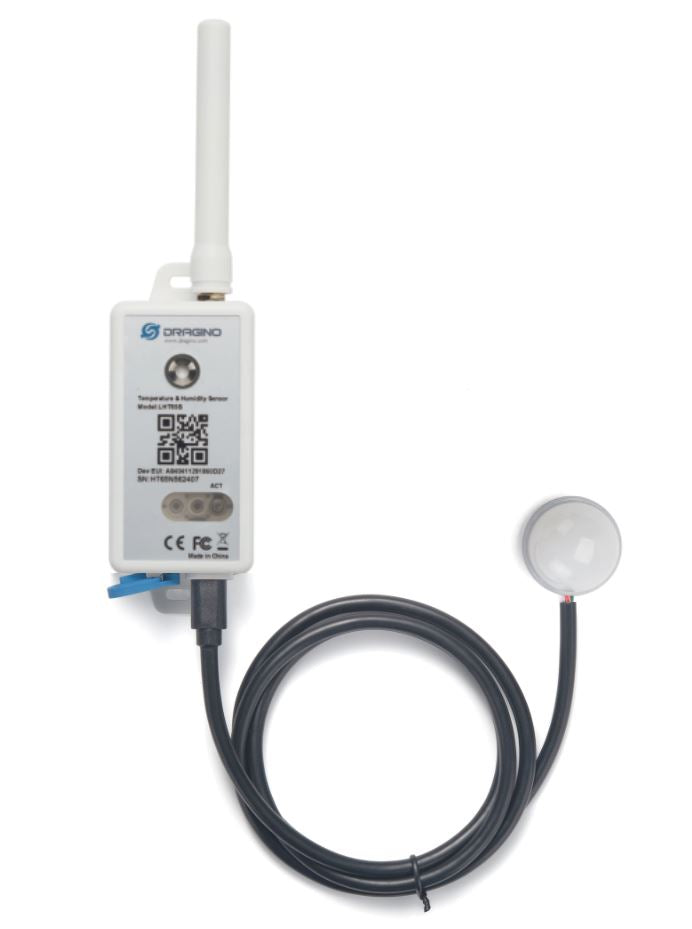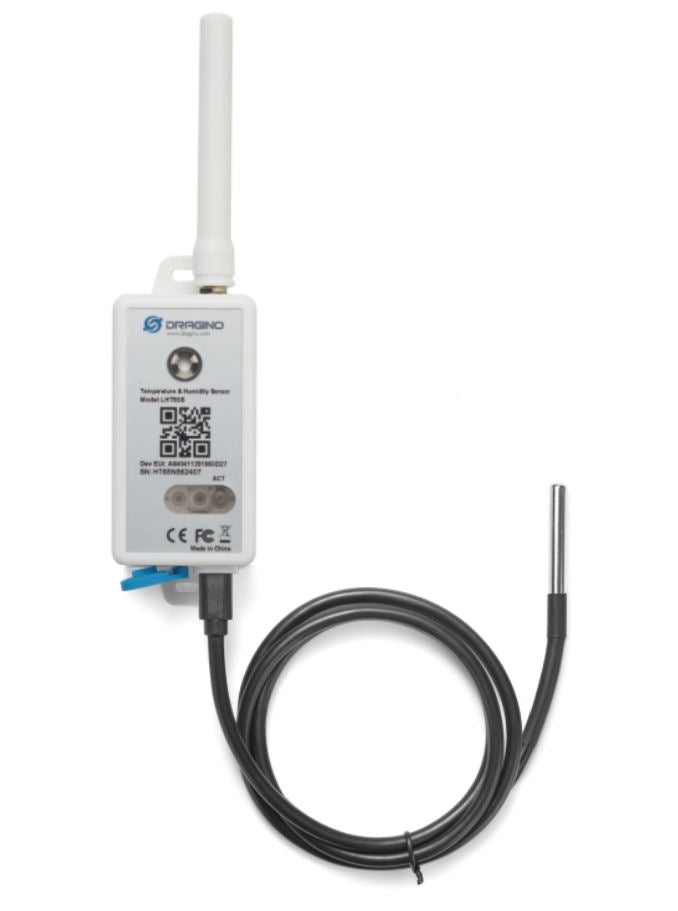The two basic types: what humidity sensors do
Humidity sensors measure either the humidity in the air or in the soil.
Humidity sensors
These sensors are used to determine the relative humidity. The measurement refers exclusively to the proportion of gaseous water vapour in the air; water in the form of raindrops is not taken into account.
Soil moisture sensors
These sensors measure the water content in the soil, often in the ground. Accordingly, they are located in the ground, in upper or deeper layers, depending on the target. However, water and soil moisture sensors can also be used in basements and elsewhere as an alarm system for flooding.
Measuring humidity: a humidity sensor provides valuable services here
Relative humidity is a key measurement that proves important in a variety of environments. The classic example is the measurement in living spaces: if the humidity is too high, there is a risk of mould growth; if it is too low, there may be negative effects on the immune system. Accordingly, it pays to measure humidity continuously with special hygrometersor comprehensive weather stations. The same applies to industrial companies and logistics service providers that, for example, produce or store food. Ideal humidity levels have a decisive influence on quality.
Humidity sensors are an indispensable module in building automation. If the measured values fall below or exceed the specified limits, the ventilation system reacts automatically.
Order the ideal humidity sensor
If you need an air humidity sensor for your project, then our shop is the right place for you: benefit from brand quality and a wide selection! First, consider which measured values you require: is it enough for you to measure the humidity? Or do you want other measured values such as temperature and air pressure? Here in our range, you will find various models that either measure humidity only or provide other measured values.
Also pay attention to the specific technical features and compatibility with platforms and microcontrollers. For example, you can order an Arduino humidity sensor or a humidity sensor for Raspberry Pi. Another relevant aspect is the accuracy of the measurement.
How to choose the ideal soil moisture sensor
As with humidity sensors, measurement accuracy is of the essence. It is best to first create a requirements profile and then look for the suitable soil moisture sensor. Again, check whether the respective soil moisture sensor is compatible with Arduino or Raspberry Pi.
A high-quality soil moisture sensor is also robust and corrosion-resistant and has a long-range data transmission technology. You can find all the details on the individual product pages.
Measuring soil moisture: example from agriculture
A soil moisture sensor is a measuring device that you can use to determine the water content of the soil. These sensors are used in particular in agriculture and forestry. They provide users with precise information about the condition of the soil in the respective layer. For example, soil can be wet, moist, parched or dry.
In agriculture, these soil moisture sensors enable automatic irrigation. The current measurement indicates whether irrigation is necessary and, if so, how much water the soil needs. This automation increases efficiency on farms.





